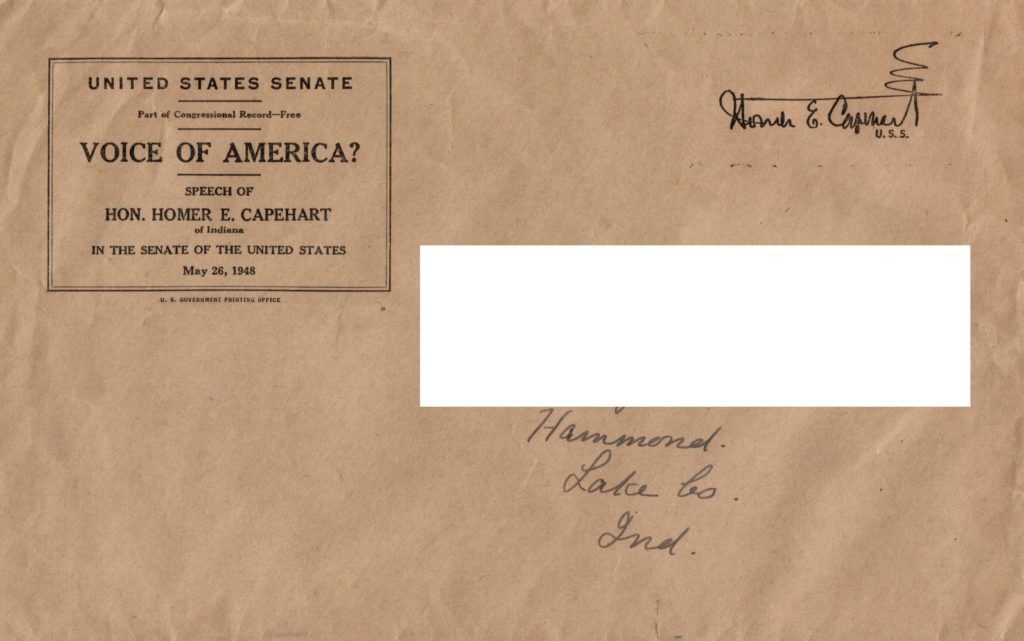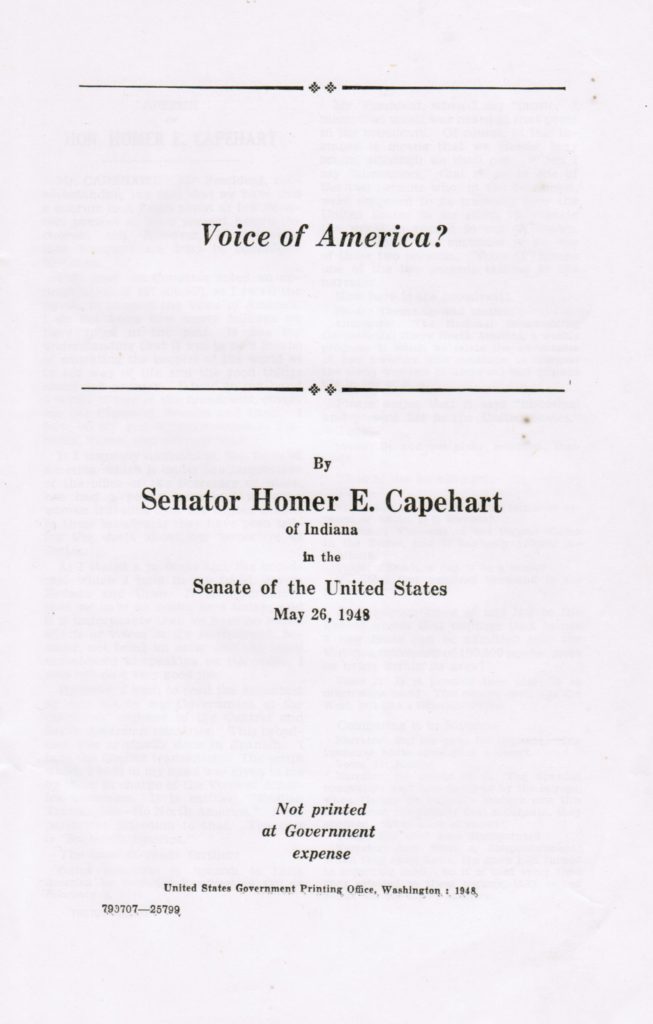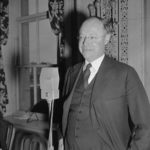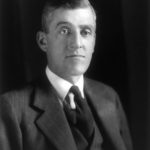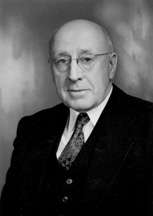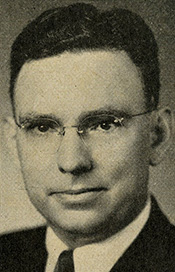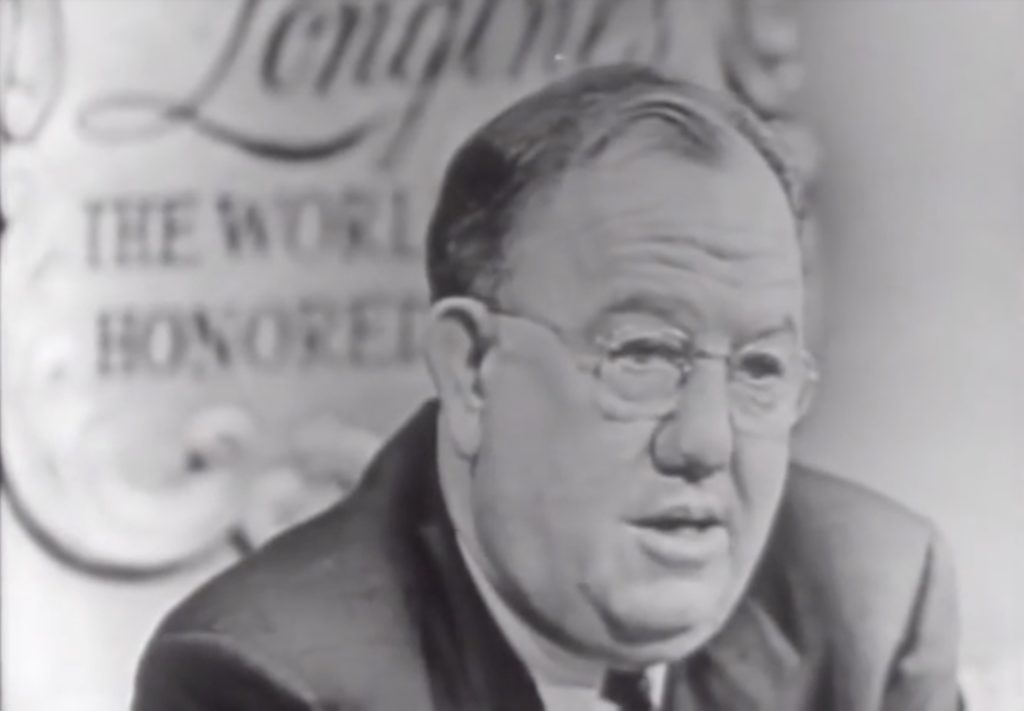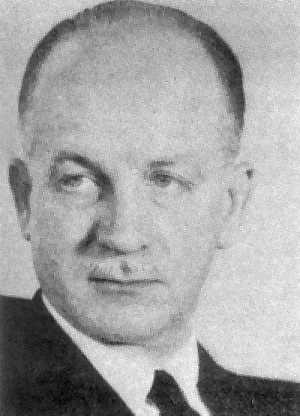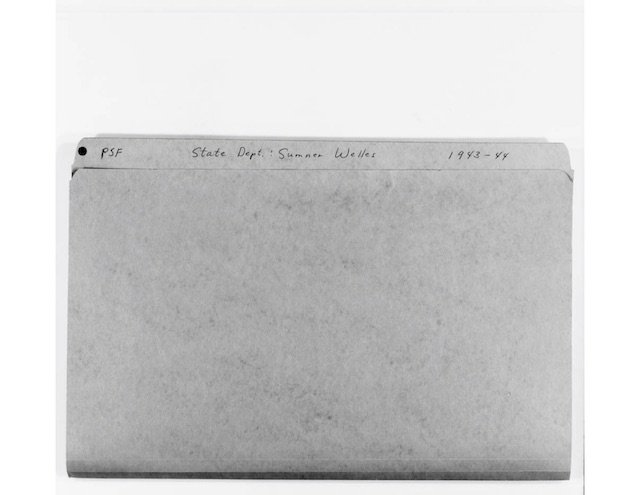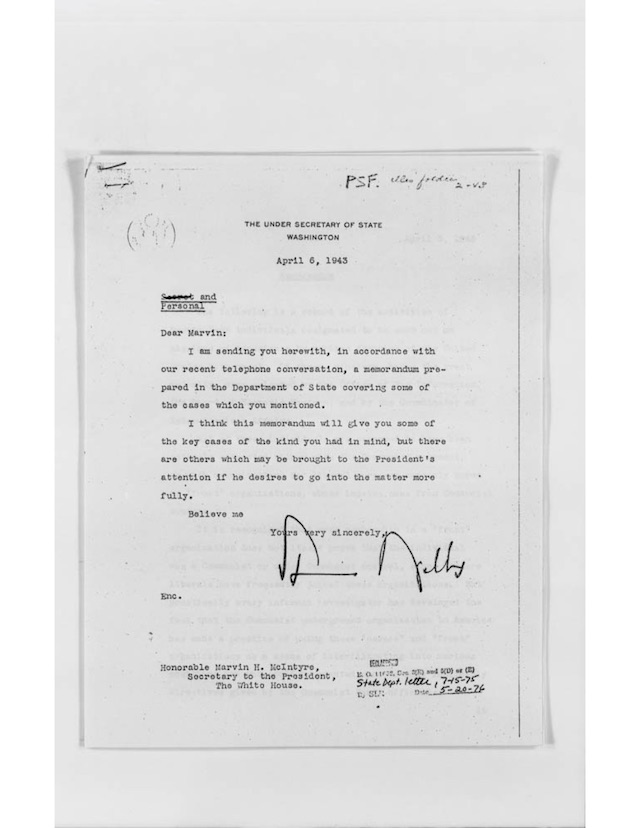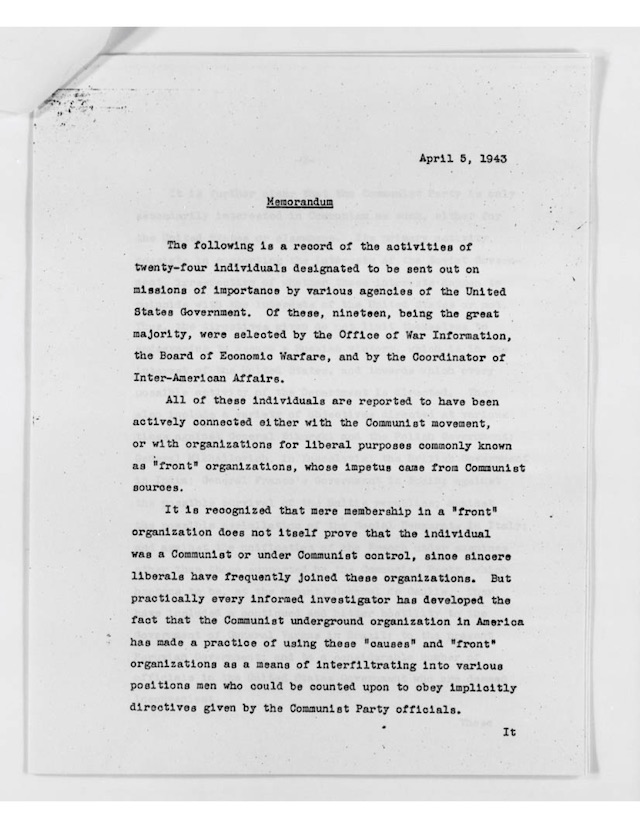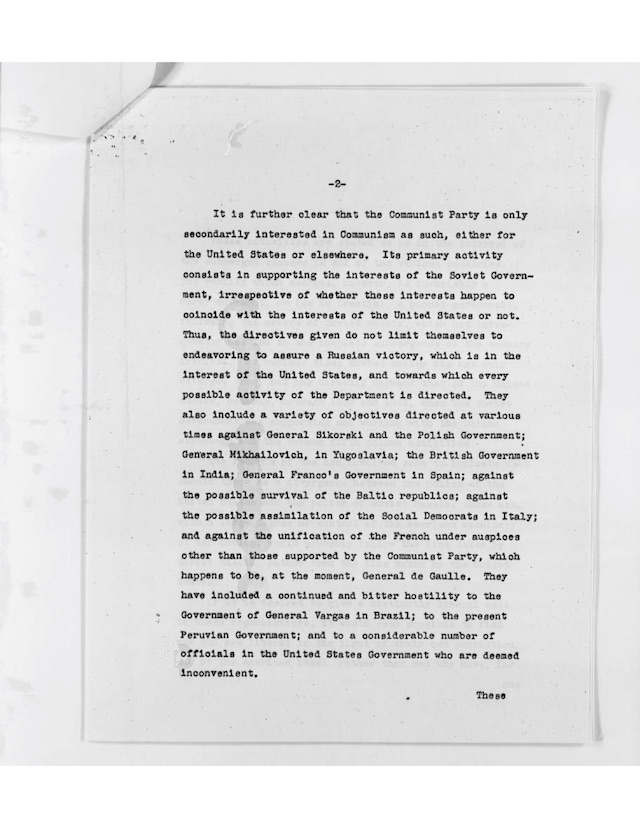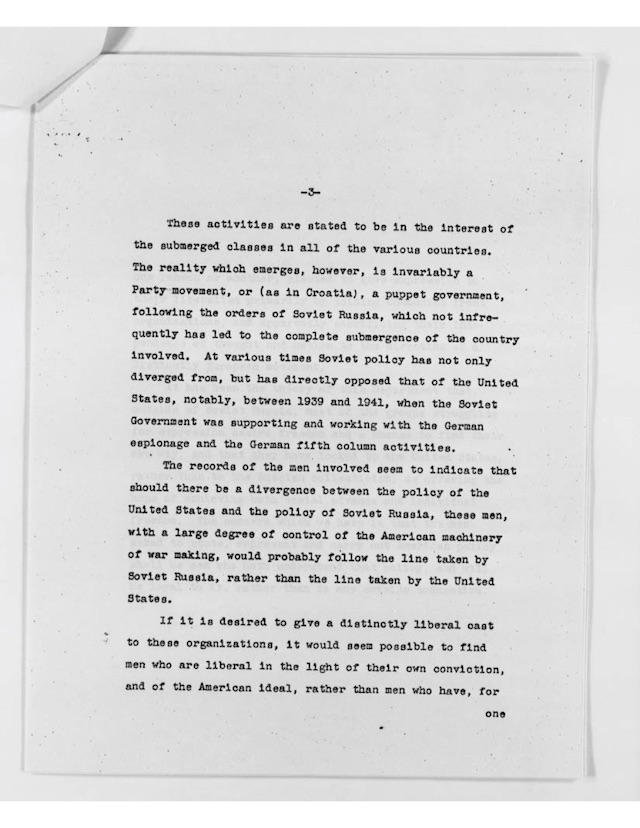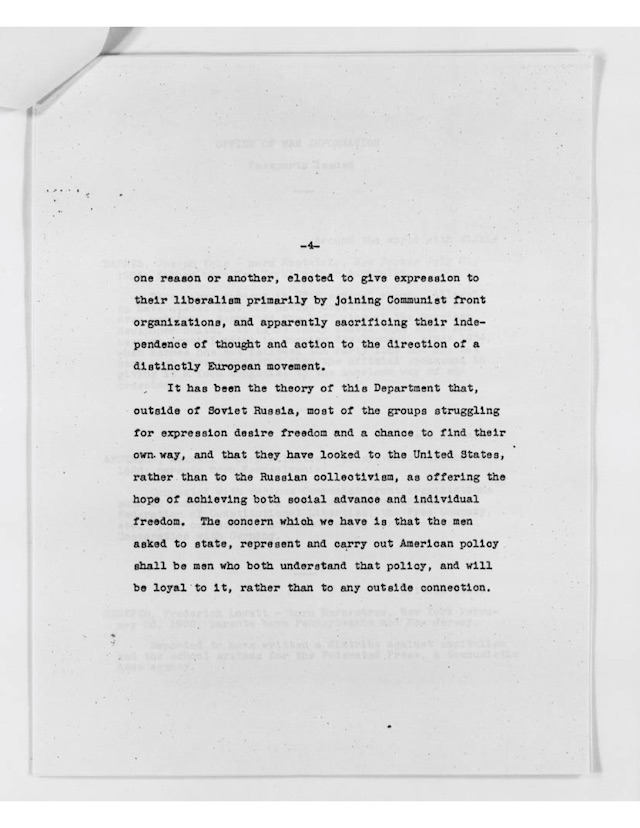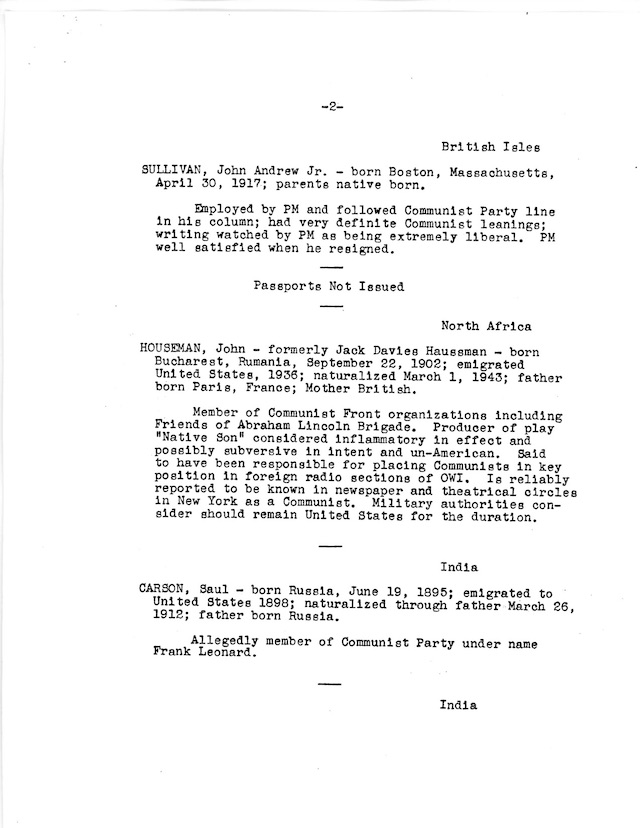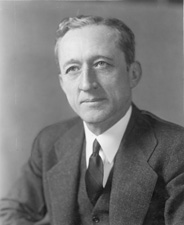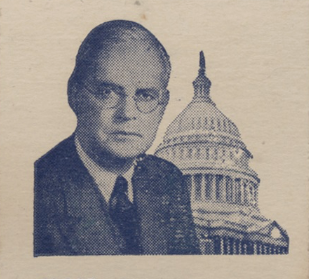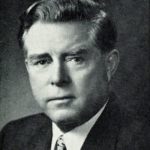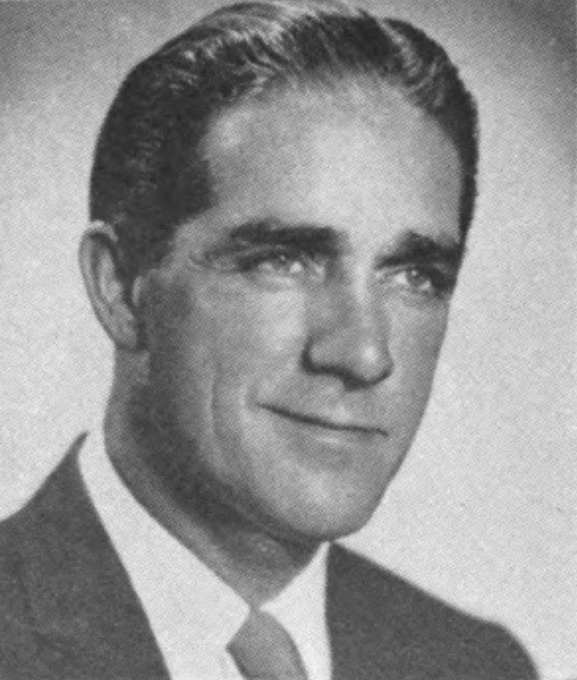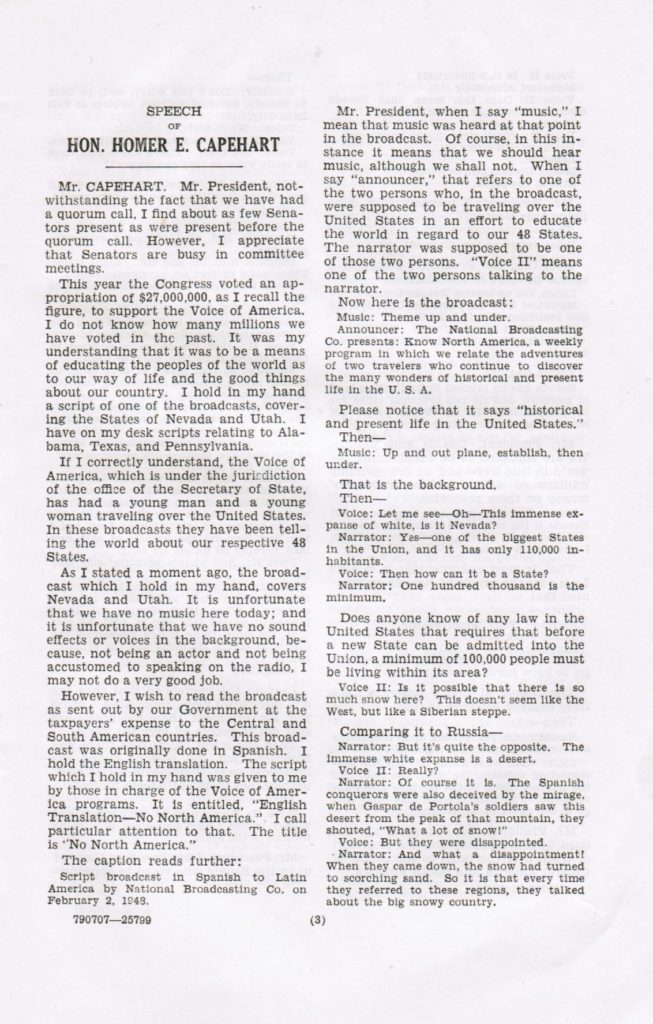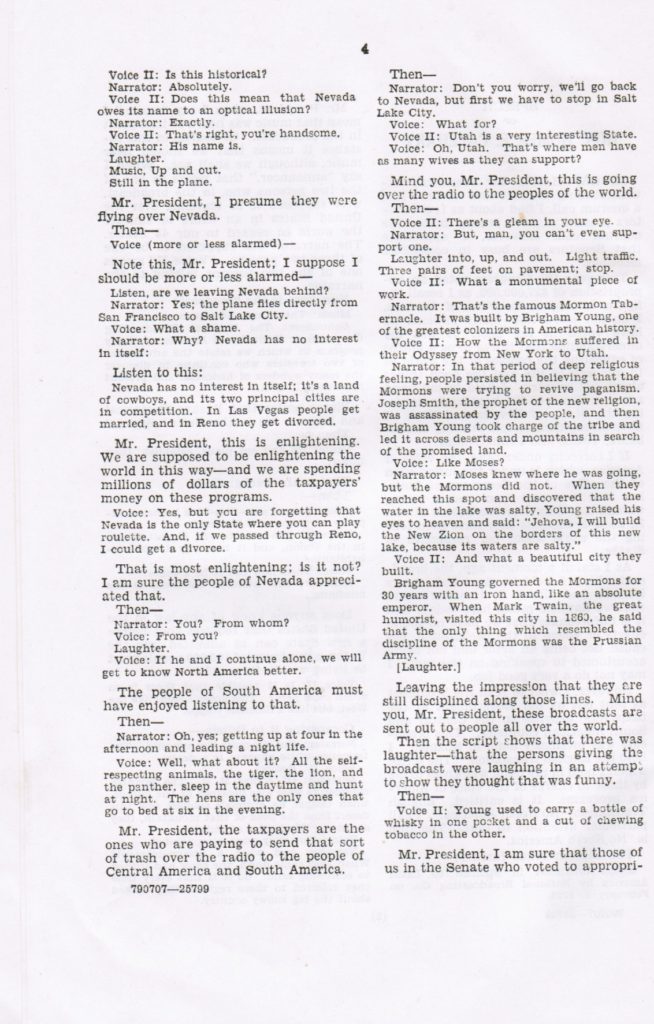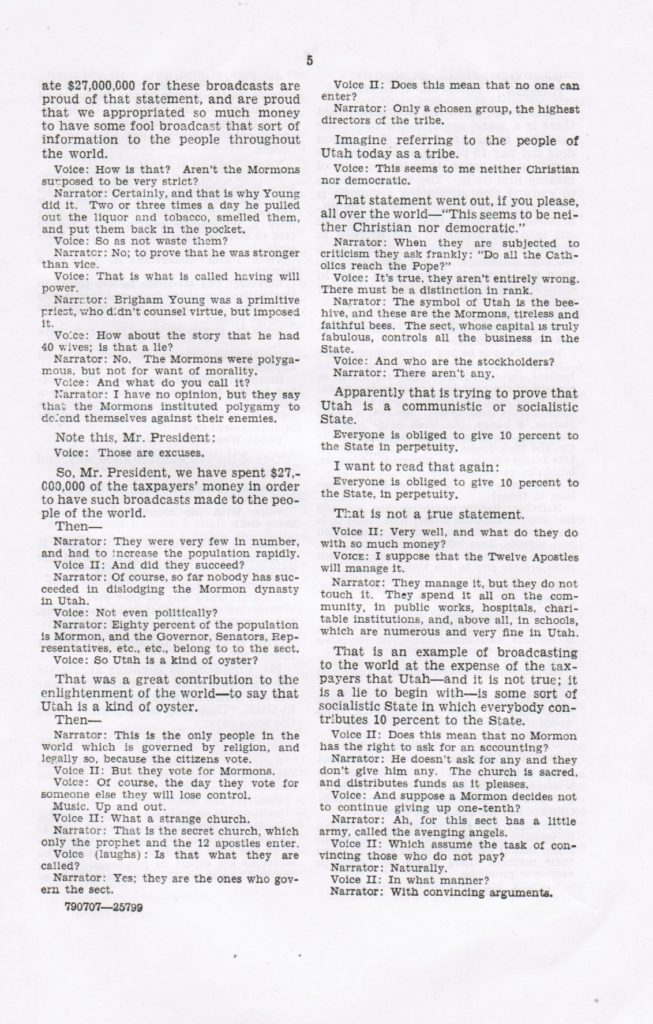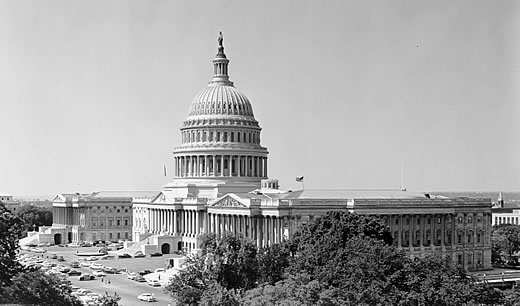
In 1948, Democrats and Republicans in the U.S. Senate charged that Voice of America (VOA) broadcasts contained “baloney,” “lies,” “insults,” “drivel,” “nonsense and falsehoods,” amounting to “useless expenditures” and “a downright tragedy.”
In 1948, U.S. senators called VOA programs “ridiculous,” “unjustified” and “deplorable.” Liberal, moderate, and conservative lawmakers, some of whom even accused the Voice of America of “slander” and “libel” in how several U.S. states were described in radio programs acquired from NBC under a government contract, did not seek to de-fund and close down VOA but wanted to make it more effective in presenting America to the world and in countering propaganda from Soviet Russia. Their criticism eventually led to partial personnel and programming reforms in the early 1950s. In 2019, history seems to be repeating itself, with similar problems being reported at the Voice of America as the United States tries to respond to propaganda from Putin’s Russia, communist China, theocratic Iran and other nations under authoritarian rule. Today, there is little interest in the U.S. Congress and no obvious signs of management reforms, while some of the problems seem now more difficult to solve than those besetting the broadcaster in 1948.
Introduction for Cold War Radio Museum by Ted Lipien
In 1948 many residents of Indiana received by U.S. mail a 24-page booklet from one of their two U.S. senators. It was delivered in a six-and-a-half by ten-and-a-half inch brown envelope with “Voice of America” written in the upper left corner, mysteriously followed by the question mark.
“Voice of America?”
Inside the envelope was a thin booklet published by the United States Government Printing Office at the request of a U.S. senator. Taxpayers paid for mailing the booklets as members of Congress were entitled to free postage to communicate with their constituents, but their printing was paid for by the senator himself, most likely from his political campaign donations. Yet, the booklet, which included the senator’s speech delivered on the floor of the U.S. Senate earlier in May 1948, did not appear overly partisan. The “Voice of America?” booklet included numerous quotes from both Republican and Democratic senators, all of them in agreement that reforming U.S. international broadcasting would prevent waste of taxpayers’ money and improve national security. A year later (1949), Radio Free Europe was created, under then the secret oversight by the Central Intelligence Agency (CIA), to broadcast to nations of East-Central Europe, and in 1953 Radio Liberation (later renamed Radio Liberty) started broadcasting to the Soviet Union, both based in Munich, West Germany. Partial management and programming reforms were carried out in the early 1950s at the Voice of America (VOA), which was then based in New York but managed by the U.S. Department of State. In 1953, VOA was moved to Washington, DC and placed within the newly-created United States Information Agency (USIA).
The question presumably being asked in the title of the 1948 booklet was whether the tax-funded Voice of America accurately and fairly represented the United States. Another unstated question might have been whether VOA was free from ideological or partisan bias, and whether it reflected in its reporting all responsible viewpoints by explaining their respective weight and influence within the American society in a professional, journalistic manner. It was an issue of bipartisan concern.
The letter was sent from the office of the freshman senator from Indiana, Homer Earl Capehart, a successful businessman and a moderate Republican who in 1948 had already served three and a half years of his first Senate term. The Voice of America was then and still is today (2019) the radio station (it now also has television programs and multimedia Internet content) funded and managed by the U.S. government. With descriptions such as “outright lies” and “contemptible, damnable lies” from Capehart and other senators, the “Voice of America?” booklet contained a devastating bipartisan criticism of the radio broadcasting operation seen as failing to carry out its mission to reach, inform and influence overseas audiences with the right kind of programming. Senator Capehart seemed to be asking whether the Voice of America programs were worth millions of dollars of taxpayers’ money and whether they advanced freedom of the press and U.S. interests abroad.[ref]Senator Home E. Capehart of Indiana, Voice of America? (Washington: United States Government Printing Office, 1948), http://www.coldwarradiomuseum.com/wp-content/uploads/2019/07/Sen-Capehart-on-VOA-1948.pdf.[/ref]
The senator’s 1948 letter to his Indiana constituents was not the first or even the most serious objection U.S. lawmakers had about the management and content of Voice of America programs since they first went on the air in 1942. Compared to VOA’s World War II blatant pro-Soviet propaganda, the 1948 radio scripts discussed in the U.S. Senate were not nearly as outrageous as the earlier coverup of Stalin’s crimes, but the letter reflected a longstanding concern shared by many members of Congress of both parties that these broadcasts were of poor quality and did not represent generally accepted American interests and values. To understand, therefore, where Senator Capehart and other conservative, moderate and liberal senators were coming from in commenting in such a highly negative way on these U.S. government-produced programs, it is necessary to know some of the history of the Voice of America’s World War II origins. It is also important to know that their criticism directed at the Voice of America in 1948 was not purely partisan or in any way similar to irresponsible accusations of communist influence made a few years later against the State Department and VOA by Senator Joseph McCarthy (R-WI). Several liberal Democrats had joined Senator Capehart in 1948 in condemning the management of Voice of America programs. When Senator McCarthy made his wonton charges in the early 1950s, any Communists previously employed by VOA were long gone. Some of them were already working for Soviet-controlled regimes in Warsaw and Prague or writing articles for the Communist Party USA newspaper, The Daily Worker. They were at the Voice of America, but they were there much earlier.
VOA in WWII
VOA started to broadcast American and international news by shortwave radio with the purpose of informing and influencing public opinion abroad shortly after America entered the war with Japan and Nazi Germany. The U.S. government discovered that unlike other major powers, the United States did not have radio facilities to deliver American and foreign news to audiences abroad and to counter propaganda from enemy nations. A glorified but largely false and frequently repeated version of the Voice of America’s early history can be found in a November 27, 2018 Washington Post op-ed by the current (July 2019) VOA Director Amanda Bennett and in various books about VOA, including Voice of America: A History by Alan L. Heil, Jr., a former VOA program director.[ref]Alan L. Heil, Jr., Voice of America: A History (New York: Columbia University Press, 2003), 32-37.[/ref]
VOA director Amanda Bennett wrote in 2018:
“Those broadcasts were lifelines to millions. Even more important, however, was the promise made right from the start: ‘The news may be good for us. The news may be bad,’ said announcer William Harlan Hale. ‘But we shall tell you the truth.’”[ref]Amanda Bennett, Voice of America Director, “Trump’s ‘worldwide network’ is a great idea. But it already exists.” The Washington Post, November 27, 2018, https://www.washingtonpost.com/opinions/trumps-worldwide-network-is-a-great-idea-but-it-already-exists/2018/11/27/79b320bc-f269-11e8-bc79-68604ed88993_story.html.[/ref]
What the VOA director wrote was not factually inaccurate, but it was far from the whole truth because it created a false impression of what VOA was like in those early years. Bennett also suggested in her November 2018 article that one of the great American early radio and television news reporters, Edward R. Murrow, was linked to the creation of the Voice of America. She was vague, but her op-ed at least implied that Murrow was somehow responsible for truthful VOA news reporting from the moment the first broadcast went on the air in 1942. She would have been more accurate if she wrote that those who helped to create VOA followed in the footsteps of Pulitzer Prize-winning New York Times Moscow correspondent Walter Duranty who, because of his pro-Soviet and pro-communist bias, shamelessly lied about the starvation and death of millions of people in Ukraine and in other parts of the Soviet Union under Stalin’s rule.
Amanda Bennett wrote:
“‘Truth is the best propaganda, and lies are the worst,’ said Edward R. Murrow, who helped create VOA.”[ref]Ibid.[/ref]
Murrow, however, had nothing to do with pro-Soviet Roosevelt administration officials and journalists put in charge of creating VOA during World War II. They got their propaganda news from Soviet Embassies in Washington and London. They listened to and believed in what Radio Moscow and their contacts within the Communist Party USA (some of the editors and broadcasters were party members) were saying. They rejected news about Stalin’s atrocities as anti-Soviet propaganda.
Edward R. Murrow, on the other hand, was a completely different type of a 20th century American radio journalist. As a CBS radio war reporter in Britain, he maintained contacts with representatives of democratic governments-in-exile representing countries conquered and occupied by Nazi Germany and in some cases also by Soviet Russia when Stalin was still Hitler’s ally. While reporting objectively on Russia, Murrow also sought and reported news he received from East European diplomats and other emigres. They were despised by Stalin and toward the end of the war were being increasingly vilified by Soviet propaganda for opposing communism and Soviet plans to establish un-democratic, satellite regimes in East-Central Europe after the war. Unlike Murrow, a large number of VOA officials and news writers shared Stalin’s hostile attitude toward these smaller nations which were also part of the U.S.-British-led anti-Nazi alliance. Early VOA officials and editors ignored information from any news sources critical of the Soviet Union and eventually banned them almost completely from VOA programs.
To suggest therefore that Murrow had helped to create VOA stretches the truth. It is true, however, that as a member of an independent commission, Murrow advised the U.S. government shortly after the war on information and public diplomacy programs, including radio broadcasting. He was named by President John F. Kennedy the United States Information Agency (USIA) director in 1961.
Unlike Edward R. Murrow, most of the early Voice of America managers and government-employed journalists were either completely fooled by Soviet propaganda, or they were strongly reluctant to expose it, either for ideological reasons, because they believed in socialist and communist ideas, or for military reasons, because Russia was critical for achieving a victory over Germany. Telling the truth was of secondary importance to be practiced only if it did not interfere with ideological or larger military goals. Even when it came to protecting lives of American soldiers, some of the early VOA broadcasters were willing to take risks to push their Soviet-influenced ideological and geopolitical view divorced from both reality and truth. But in his book published in 2003 after he retired from his U.S. federal government executive job at the Voice of America, Alan Heil Jr. quoted first VOA director John Houseman in an effort to present him and World War II VOA broadcasters as consistent defenders of truthful and objective journalism.
Houseman recalled: “We went on the air … with no name, out of a cramped studio, on borrowed transmitters, with absolutely no director from anyone as to what we should broadcast other than the truth.”[ref]Alan L. Heil, Jr., Voice of America: A History (New York: Columbia University Press, 2003), 36-37.[/ref]
In fairness to Heil, he briefly mentioned in his book some of the World War II controversies relating to the Voice of America programs which went against U.S. military and foreign policy, but he did not present them as part of a large and successful Soviet effort to subvert the U.S. government propaganda radio with the help of Soviet sympathizers, Communist Party members and other agents of influence. They did it by seeking, accepting and spreading Soviet propaganda lies while rejecting facts and censoring news that could expose Stalin’s atrocities and aggressive designs on Russia’s neighbors and their independence.
In 2019, the Voice of America still presents a sugared version of its early history by offering half-truths and hiding, intentionally or unintentionally, VOA’s betrayal of honest reporting and its betrayal of American values during World War II through open and covert coordination of propaganda with the totalitarian and murderous Soviet communist regime. In this 2019 VOA video, John Houseman, who in 1942 had recruited a future Communist Party USA member and Stalin Peace Prize winner as VOA’s first chief news writer and news director, is still described as a defender of truth, journalistic honesty and independence. The lessons that the staff and their management by their leaders determine editorial policy have been forgotten, partly because the Voice of America’s early history has never been fully and honestly told and shared with today’s generation of young VOA reporters and with VOA’s audiences, which, thanks to the Internet, now include an increasing number of Americans.
The real history of VOA’s first years was much more complicated than anything being presented in hagiographic VOA videos and books by former U.S. government officials. It was the future Hollywood Oscar-winning actor, John Houseman, who had hired many of his communist friends to work on preparing the early VOA broadcasts. He himself was hired for his influential high-level U.S. government position even before he became a U.S. citizen and apparently did not initially undergo a full security background check.
Almost immediately after they began in 1942, VOA wartime programs under Houseman’s supervision were met with criticism on Capitol Hill even though his name was not specifically mentioned. Members of Congress focused their attention on his bosses and some of the journalists he had hired who were identified as Communists. Reflecting concerns being raised by various ethnic groups and parts of U.S. media, congressional critics charged that these radio broadcasts were becoming a venue for spreading propaganda from the Soviet Union. Such criticism was generally muted since Russia was already at that time America’s most important military ally against Nazi Germany, but several members of Congress did raise alarm that American and foreign Communists who found employment with the Office of War Information (OWI), which was then the federal agency in charge of VOA radio programs, were promoting foreign interests and ideologies inconsistent with long-term American interests and values.
Ethnic press and some mainstream media journalists who were concerned about Soviet influence within the Roosevelt administration also started to point out that VOA had been taken over by a group of radical Soviet sympathizers. VOA’s pro-Soviet editorial bias was also confirmed by many listeners to wartime radio among non-communist refugees fleeing Europe under Nazi occupation or escaping from the Soviet Gulag. Refugee journalists who understood the threat of Soviet communism found some of the early VOA World War II broadcasts uninformative, naive, and offensive in pushing Soviet disinformation. A Polish radio broadcaster Czesław Straszewicz, who was in London during the 1944 anti-Nazi Warsaw Uprising, recalled in 1953 in an article published in Paris by the liberal emigre journal Kultura that early VOA programs were unmistakably following the Moscow line.
“With genuine horror we listened to what the Polish language programs of the Voice of America (or whatever name they had then), in which in line with what [the Soviet news agency] TASS was communicating, the [1944] Warsaw Uprising was being completely ignored.”[ref]Czesław Straszewicz, “O Świcie,” Kultura, October, 1953, 61-62. I am indebted to Polish historian of the Voice of America’s Polish Service Jarosław Jędrzejczak for finding this reference to VOA’s wartime role.[/ref]
American journalist Arthur Krock, who during World War II was the Washington bureau chief for the New York Times and a frequent and severe critic of the Office of War Information, wrote that the parent agency which managed VOA spoke with an “‘ideology’ that conforms much more closely to the Moscow than to the Washington-London line.”[ref]Quoted by Holly Cowan Shulman, Voice of America: Propaganda and Democracy, 1941-1945 (Madison: The University of Wisconsin Press, 1990), 101.[/ref] Conservative journalists were more blunt. Washington’s Times-Herald newspaperman John O’Donnell wrote a highly critical commentary on August 20, 1943 when it appeared that Congress might de-fund Voice of America broadcasts over charges that OWI was trying to push Soviet propaganda not only on foreign audiences but also on Americans.
Few honest newspaper tears are going to be shed over the demise of an outfit which from birth was a New Deal Roosevelt propaganda body (as discovered by the last Congress which amputated its domestic claws) and throughout its career gave off the distinctly unpleasant stench of being a parking place for pay-roll patriots, political stumble bums and the incompetent sweepings of editorial rooms.
Several of John O’Donnell’s biting commentaries was inserted into the Congressional Record by Republican members of Congress.
Promoting Soviet interests by some VOA broadcasters did not cease with the end of World War II and the end of U.S.-Soviet military alliance against Nazi Germany even as journalists and members of Congress were warning that the pro-Soviet line continued. One of the very few anti-Communists at the Voice of America during the war, was internationally-published journalist and anti-Nazi Jewish refugee Julius Epstein. As a young student in Austria, Epstein was briefly a member of the Communist Party but quickly became an opponent of Communism and wrote about it both in Europe and later in the United States before joining the U.S. propaganda agency. After the war, he tried to expose to Americans the legacy of Soviet influence over VOA broadcasts and was vilified for doing this by VOA and State Department officials as an immigrant troublemaker. After losing his government job, he campaigned for reforming VOA and became a bestselling author. [ref]Memorandum from Foy D. Kohler (OIB/NY) to All Commission Members, December 18, 1951; RG 0059, Department of State, U.S. International Information Administration/International Broadcasting; Entry# P315: Voice of America (VOA) Historical Files: 1946-1953; Reports Psychological Operations POC THRU Katyn Forest Massacres III; Container #18; National Archives at College Park, College Park, MD.[/ref]
In a 1952 article titled “The O.W.I. and the Voice of America,” Epstein wrote:
“I do not know of any other case which shows so clearly that the policies of the Voice of America have sometimes exactly the same effect as if they had been designed and carried out by a well-paid Soviet agent than the way the Voice treated Stalin’s cold-blooded murder of 15,000 [the figure known at that time] Polish officers who were massacred on Soviet soil in the spring of 1940. As I already mentioned, the OWI accepted Stalin’s big lies on Katyn (that the Germans had murdered the Polish officers) at face value and disseminated those lies all over the world. When, after the war, a large amount of irrefutable evidence became available, evidence to the effect, that not the Germans but Stalin’s own NKVD had massacred the Poles, in order to get rid of the most valuable future anti-Stalinists in Poland, the Voice of America kept silent.”[ref]Epstein, Julius. “The O.W.I. and the Voice of America,” A reprint from the Polish American Journal, Scranton, Pennsylvania, 1952. Also: Epstein, Julius. Congressional Record: Proceedings and Debates of the 81st Congress, Second Session, Appendix. Part 17 ed. Vol. 96. August 4, 1950, to September 22, 1950. Washington, DC: United States Government Printing Office, 1950.
Pages A5744-A5745.[/ref]
In the early 1950’s, Epstein’s articles were quoted by several members of Congress and inserted into the Congressional Record. In the early years, these U.S. government broadcasts for overseas audiences were still aired under various names until the official “Voice of America” designation was eventually adopted. While VOA shortwave radio transmissions were targeting an overseas audience, there was a strong opposition in the U.S. Congress during the war to the use of government-sponsored radio programs and other OWI materials prepared by OWI’s domestic division to propagandize to American citizens in the United States and to American soldiers fighting abroad. During the war, Congress de-funded almost all of OWI’s domestic propaganda activities and at one point nearly killed VOA’s overseas broadcasts.[ref]Almost all writers of Voice of America history, former and current VOA and U.S. State Department officials, as well as former United States Information Agency public diplomacy experts agree that VOA started within the Office of War Information in 1942 with the first radio broadcast to Germany even though initially and for the first few years it did not use the full “Voice of America” name. One public diplomacy expert, insists, however, that the radio broadcasting unit within the OWI should not be called the Voice of America because it had different names and a different mission from the one established after VOA was moved to the State Department in 1945 and to the USIA in 1953. This writer disagrees with this conclusion. While there were personnel cuts in 1945, some of the former pro-Soviet VOA broadcasters and some of VOA’s managers continued their radio work within the State Department for several more years before they were replaced. The Voice of America continued to cover up Stalin’s crimes or to ignore them for several more years after the war. The same criticism of OWI-VOA pro-Soviet foreign and domestic propaganda continued after the war and contributed to the passage of the 1948 Smith-Mundt Act. One expert disagrees that OWI’s and VOA’s pro-Soviet domestic propaganda played a role in the enactment of the Smith-Mundt Act which restricted the distribution of VOA programs in the United States. This writer maintains that the fear of Soviet agents of influence and of Soviet propaganda being forced upon Americans by the Voice of America and other agencies of the Executive Branch played a major role in congressional debates, starting in about 1942, and contributed to the Smith-Mundt Act becoming U.S. law. Many former and current VOA officials have been either unaware of these facts or tried to hide them to perpetuate a dangerous myth that the Voice of America should not be overly scrutinized and managed by the U.S. Congress or any U.S. administration because its journalists and officials have always been totally committed to broadcasting truthful news and can do no wrong. Media outreach abroad in countering Russian and other hostile foreign propaganda is needed and can be effective in some cases, but this writer believes that any U.S. Executive Branch effort to propagandize to Americans in the United States carries enormous risks, as does ineffective management of U.S. government media outreach abroad.[/ref]
In a speech on the Senate floor on April 19, 1943, a little over a year after the first VOA broadcast in German went on the air in February 1942, Senator Robert A. Taft (R-OH) had warned of “ugly rumors abroad” that much of American “short-wave broadcasting is futile and idiotic, and very inferior to that of other nations.”
“It is said that some of it is communistic and some of it is fascistic, and that much of it tries to play European politics, about which we know nothing, instead of presenting the American point of view,” Senator Taft added.[ref]Robert A. Taft, Congressional Record—Senate–78th Congress, VOLUME 89–PART 3, April 19, 1943, 3543-3544. Also see: Ted Lipien, “Senator Taft’s early warning of Soviet propaganda in WWII Voice of America,” Cold War Radio Museum, https://www.coldwarradiomuseum.com/senator-tafts-early-warning-of-soviet-propaganda-in-wwii-voa/.[/ref]
Senator Taft was wrong on only one point. There were no real Fascists among the early VOA staff even though Soviet propaganda and Soviet sympathizers liked to accuse anyone who disagreed with them of favoring Fascism and being on the side of the Nazis, including Polish soldiers who fought the Germans in combat alongside American and British troops. A few anti-communist journalists were hired by OWI during the war, but like Julius Epstein they were quickly marginalized. One anti-communist Polish broadcaster and former Polish diplomat, Konstanty M. Broel Plater, reportedly resigned from VOA when told to read Soviet propaganda lies. Epstein lost his OWI position in 1945.
Unlike Epstein and Plater, the majority of wartime VOA broadcasters, were strongly in favor of the Soviet Union, Joseph Stalin, and Soviet foreign policy, even if they were not members of the Communist Party, as some of them were. The OWI technically reported to the President and the White House, but in reality it was run during the war by a group of radically pro-Soviet officials who enjoyed almost unlimited independence to push their ideological agenda with the support of likewise-minded journalists whom they hired from among their friends and associates. The agency came to employ a large number of foreign and American Communists. These Soviet sympathizers worked on propaganda broadcasts against Nazi Germany and Japan, as these two nations were VOA’s main focus during the war. But in their open and covert activities, VOA officials and journalists also strongly supported Soviet Russia and its foreign policy and ideological objectives even when they came in conflict with U.S. government policies and American democratic values.
Because of bureaucratic attempts to hold on to its power and independence after the war despite numerous prior scandals, the OWI was abolished by President Truman in 1945. The move was met with bipartisan approval. A much reduced VOA operation was folded into the State Department in the hope that U.S. diplomats would be in a better position to evaluate the content of foreign language broadcasts. The 1948 Smith-Mundt Act, which was largely about foreign exchange programs and public diplomacy, made domestic distribution of VOA broadcasts to U.S.-based media nearly impossible and vastly improved security checks on VOA personnel. By then, most foreign and American Communists had already left their jobs with VOA, but some journalists and a few U.S. diplomats still holding idealistic views about Russia and communism continued to have influence over post-war VOA broadcasts for a few more years.
1948
By 1948, the Voice of America’s failure to adjust to the reality of aggressive Soviet behavior was becoming well known and seen as a problem in Washington. Even VOA programs not dealing directly with international affairs and U.S. foreign policy had what many members of the U.S. Congress considered a radical left-wing bias. This was unacceptable to both Republicans and Democrats who saw VOA broadcasts as being generally lame and even counterproductive in representing the United States and advancing American interests abroad. This applied not only to broadcasts produced by VOA journalists themselves but also to programs contracted out to be produced under VOA’s supervision by American media companies.
In early 1948 Senator Capehart of Indiana was made aware of Spanish-language programs about U.S. states produced under a U.S. government contract for the Voice of America by the National Broadcasting Co. — NBC. The booklet sent to Indiana households included excerpts from the VOA programs as quoted by Senator Capehart in English translation in his speech delivered on the floor of the Senate on May 26, 1948:
“Listen to this,” Senator Capehart said as he read to the Senate from one of the VOA programs:
Nevada has no interest in itself; it’s a land of cowboys, and its principal cities are in competition. In Las Vegas people get married, and in Reno they get divorced.
Senator Capehart was not amused by such humor, and neither were other Senators as they listened to his reading of excerpts from the NBC-VOA programs on Nevada, Utah, Alabama, Pennsylvania, and Texas. Some humor could have been effective if it did not descend into mockery as it seemed to do in these 1948 VOA acquired broadcasts. It almost appeared as if NBC reporters traveling around the country at U.S. government’s expense were writing their programs for VOA after having drunk a few martinis. The broadcasts were not wrong about everything, but their authors appeared not to know or care that what could seem hilarious to some Americans in a comedy show might be viewed and interpreted differently by a foreign audience listening to shortwave radio for news they could not get from any other sources.
Mr. CAPEHART. Does not the Senator [Leverett Saltonstall, R-MA)] agree with me that it seems almost incredible that such programs should have been sent over the Voice of America? Does he not agree with me that it is almost impossible to believe that such programs could be broadcast, if anyone having to do with them had the least bit of common horse sense or judgement? One would think that any 10-year-old child, if he had picked up that script and read it in advance of its being broadcast, would have said that it should not have been used.
“Listen to this, Mr. President, Senators from New England will enjoy this. I am glad to see the Senator from Massachusetts [Mr. SALTONSTALL] in the Chamber,” Senator Capehart said on the Senate floor as he read another excerpt from the NBC program commissioned and aired by the Voice of America.
New England was founded by hypocrisy and Texas * * * by sin. [Laughter.]
Leverett Saltonstall, a moderate Republican senator from Massachusetts, thanked the senator from Indiana for doing a public service “in informing the Senate as to the character of this [VOA] ‘stuff’,” which he described as “baloney.”
Other senators pointed out that the scripts were written under contract with the National Broadcasting Co. because some members of Congress had insisted earlier that part of VOA programming be contracted out to be produced by private U.S. media. They also noted, however, that contracting out journalistic work to private media companies, as encouraged by some members of Congress, and later complaints from the State Department about insufficient funding were no excuse for the lack of basic supervision and editing by VOA’s government employees working within the State Department’s bureaucracy.
Senator Capehart noted:
I do not care how large or how small a staff the Department has. Are we to understand that no one in the State Department read the scripts which were broadcast, and which I have read this afternoon? Even an 8-year-old child, if he had read them, would have condemned them. In my opinion anyone in the State Department who was honest and had the best interests of America at heart would have blue-penciled them. It may well be that no one in the State Department read them.
The scripts were in fact read and accepted for broadcast by VOA editors who apparently agreed with NBC reporters and did not see anything wrong with making a little fun of America. They might have thought that humorous and mild criticism would add credibility to VOA broadcasts, but they misjudged the sensibilities of their mid-20th congressional stakeholders and got some of the facts wrong. In case the State Department supervisors had not listened to the broadcasts in Spanish before they were aired, Senator Capehart said that the Voice of America’s managers would deserve even more severe criticism.
Other U.S. senators, including both liberal and conservative Democrats, joined Capehart in criticizing VOA broadcasts.
Mr. HATCH. Mr. President, in all seriousness, I want to say that what the Senator from Indiana has said this afternoon, though there has been laughter throughout the Chamber over it, amounts to a downright tragedy.
Senator Tom Connally (D-TX) was quoted asking whether Senator Capehart knew the name of the author of the Voice of America programs on U.S. states. The program was in fact written for VOA by NBC although it was subject to VOA’s editorial review and approval.
Senator Capehart responded:
Mr. CAPEHART. I do not know, but it was prepared under the auspices of the Secretary of State’s office and broadcast by NBC, as the Voice of America program, for which the Congress appropriated $27,000,000. While the Senator was out of the Chamber, I read in their entirety broadcasts in Utah, Nevada, Alabama, and Pennsylvania. Thus far I have failed to find a single State that has not been slandered, or a single State as to which uncomplimentary remarks have not been made.
Senator Connally, a Democrat from Texas, seemed even more indignant than Senator Capehart after he heard what VOA had said about his own state.
Mr. CONNALLY. Let me say to the Senator, the State Department, or the National Broadcasting Co., or whatever little insignificant tool of either one of them uttered that sentence has libeled and slandered a State that during World War II furnished proportionately more volunteers than any other State in the Union and contributed as much as any other State toward the national defense in the prosecution of the war.
The author, who evidently knows nothing about the history of Texas, slandered and libeled the great Commonwealth from which I come.
Senator Tom Connally was a liberal Democrat from who in the 1930s supported not only President Roosevelt’s New Deal legislation but was also one of the most interventionist Democrats when it came to U.S. engagement abroad during and after the war. Connally was a member of the Senate Foreign Relations Committee, and served as chairman from 1941 to 1947, and 1949 to 1953. As Chairman of the Senate Foreign Relations Committee, he was instrumental in the ratification of the treaty creating the North Atlantic Treaty Organization (NATO).
Neither Connally nor any other senator said that they wanted to abolish the Voice of America, but they were appalled by what they saw as poor quality and mismanagement of VOA programs. Identifying and punishing the NBC writer or the VOA editor was also not what they were after. What they wanted were reforms and a leadership change at the Voice of America which would lead to improving efficiency and effectiveness of a taxpayer-funded government program within the State Department.
One of the senators voicing support for Senator Capehart and asking for replacing ineffective department heads rather than punishing individual journalists was Republican George Aiken from Vermont. Aiken was initially an isolationist but later supported the Truman Doctrine in 1947 and the Marshall Plan in 1948.
Mr. CAPEHART. What a tragedy it would have been had someone not called the attention of the Senate to the kind and type of broadcasts which are being made, and if it had been continued in foreign languages over a period of months and months and years and years.
Mr. AIKEN. Mr. President, will the Senator from Indiana yield?
Mr. CAPEHART. I yield to the Senator from Vermont.
Mr. AIKEN. I suggest that ascertaining the author of the script and perhaps reprimanding the author or securing his dismissal from the Government service will amount to very little, and will probably correct nothing. The State Department, and the State Department alone, is responsible for the type of broadcasts which go out over the world under this program. I think the Congress has spent too much time in running down subordinates, getting sensational stories about subordinates, and then doing nothing about the department heads who are responsible for the subordinates. That is why I wish to point out that just so long as we devote our eflort to running down subordinates of a department and do not take any action against the heads of the departments who are responsible for the acts of the employees. Just so long will we have contributed very little toward better government. I hope that in this case at least action may be taken. I think we have to hold the department heads responsible if we are to get good Government service.
Russia and communist propaganda were not the main focus of Senator Capehart’s speech, but he made several allusions that the authors of the broadcasts may had been promoters of socialism and critics of religion.
Senator Elbert D. Thomas, a Democrat from Utah, whose state and religion (Mormonism) were the butt of some of the more flippant jokes in one of the NBC-produced VOA programs agreed with the Republican senator from Indiana that the broadcasts were in any case counterproductive in opposing Soviet and communist propaganda.
Mr. President, I wonder whether anyone in a foreign country who is debating whether he should join the Communist Party—someone in Italy, or perhaps a person in some other country—has heard programs such as the one we have learned about today, and I wonder whether such persons believe that what they are told in such programs are correct statements about how democracy works in the United States—as told by America itself, as told by one of our great corporations, as told by our own State Department. If so, how in the world could such a person fail to decide to be a Communist under those circumstances, and can we doubt that anyone who believed such statements would decide to have nothing to do with the kind of democracy which is reflected by such broadcasts?
Mr. President, the saddest part of this matter is not only that the broadcasts are based upon ignorance, not only that they are untrue, but that the State Department itself makes an excuse, saying, “The Congress of the United States insisted that we use the going facilities of the country.”
What businessman would sponsor a program of that sort and pay out money for advertising his own business if that sort of stuff were used as the advertising? The Senator from Indiana represents a great concern that advertises to a very large extent. Would the Senator from Indiana like to be a sponsor of such a program and pay $1,000 a minute for it?
But, Mr. President, the sad part of all this is that every man, woman, and child in the United States is hurt by such programs, which supposedly are sent out to benefit our country and to make democracy more secure, and $27,000,000 has been spent for these purposes. Yet today the House of Representatives is holding up a Federal aid-to-education bill because it is claimed that it costs too much.
Are there not some minds in the State Department or some minds in the National Broadcasting Co., if that company is responsible for these programs, with a sound feeling of responsibility for carrying out a contract and not wasting the money of all the people of the United States and at the same time blackmailing millions upon millions of people?
Mr. President, the Voice of America program, which was established on a basis of realism, has suffered tremendously from this accidental issuing of a contract to what has been considered to be a great and responsible concern. Yet that concern states as an answer and as an excuse that the Congress insisted that the going facilities of the country be used.
It was long ago that the Senator from Utah asked questions about these programs, because he heard about them. It was long ago that representatives of the group responsible for the programs talked to me about them. But it did not dawn on me how serious the situation was.
Mr. President, those of us who have been trained to be teachers—and the Voice of America should be handled by teachers—have been taught from the very beginning that the attempt to mold the minds and thoughts of young people is a very serious undertaking. If there is not enough psychology and not enough pedagogy and not enough understanding of American history in the State Department to enable it properly to supervise such matters, then all we are doing and all we are spending and all that our people are sacrificing in keeping components of our Army abroad will be useless. What will the people of any foreign country think of an American soldier after listening to a program of that kind? What will they think he is trying to represent? What will they think of one of the diplomatic or other representatives of our country anywhere? Mr. President, we simply cannot believe that any agency of the United States Government would allow such a thing to happen.
I trust that what the Senator from Indiana has done will result in having those who are concerned with these programs obtain a clear understanding of the intent of Congress and in having corrections made, so that the Voice of America will no longer be used for such useless expenditures of money, but henceforth will be used for the purpose for which it was created.
More VOA History
As foolish and misguided as these NBC programs broadcast in Spanish by the Voice of America appeared to U.S. senators, they were not nearly as bad as some of VOA’s original programs broadcast in earlier years. During World War II, VOA aired programs in English and in dozens of foreign languages but not in Russian because its officials were afraid of offending Soviet dictator Josef Stalin. Pro-Soviet propaganda and Soviet disinformation dominated, however, VOA broadcasts in English and broadcasts in foreign languages to Germany, France, Italy, Yugoslavia, Czechoslovakia, Poland and other countries. VOA added Russian broadcasts in 1947, but the first person in charge of the broadcasts was State Department diplomat and later VOA director Charles W. Thayer who was reported to have doubts that Stalin was responsible for some of the atrocities attributed to him, including the World War II Katyn Forest murder of thousands of Polish military officers in Soviet captivity.[ref]“How a refugee journalist exposed Voice of America censorship of the Katyn Massacre,” Cold War Radio Museum, April 16, 2018, http://www.coldwarradiomuseum.com/how-refugee-journalist-exposed-voice-of-america-katyn-censorship/.[/ref]
The Senate debate in May 1948 did not focus on major deficiencies in VOA broadcasts to the Soviet Union and the rest of the Soviet satellite countries, but by then these problems were also already being discussed openly in Congress and behind closed doors in other parts of the U.S. government.
A year earlier, as the U.S. Congress was debating the eventual passage of the Smith-Mundt Act, which implicitly placed restrictions on domestic dissemination of government news through the Voice of America while funding expansion of State Department’s cultural and academic exchange programs, Congressman Howard Buffett (R-NE), the father of American investor Warren Buffett, expressed concerns that officials in charge of VOA may have been secretly planning domestic propaganda activities similar to those of the Office of War Information during World War II before Congress de-funded its domestic program. As it turned out, State Department officials had no plans to distribute U.S. government radio broadcasts domestically because such a move would have killed the funding not only for VOA but also for the public diplomacy programs the State Department cared about most of all. Congressman Buffett was right, however, that U.S. diplomats were using VOA to influence U.S. public opinion to drum up support for more money for their information outreach budget.
In 1948, VOA’s original broadcasts were no longer filled with outright Soviet propaganda and Stalin’s lies, as they were during the war with Nazi Germany, and VOA programs were no longer used for domestic propaganda, but some State Department officials in charge of them, as well as many VOA broadcasters who were still pro-Soviet, continued to mute criticism of communist regimes behind the Iron Curtain. According to a declassified confidential State Department memorandum of January 25, 1951 written by U.S. diplomat Chester H. Opal who had served in Warsaw after World War II as Information Officer from 1946 to 1949, Charles Thayer who from January 1948 to October 1949 had been the Voice of America director, was uncertain whether the Russians were the actual perpetrators of the Katyn massacre. In the memorandum addressed to Walter Schwinn who also had served in Poland, Opal noted:
“I should like to recall that Charles Thayer, when he was in Warsaw, stated that he had spent a month of intensive official investigation of the Katyn case and had reported he was not convinced one way or another.”[ref]”Pro-Stalin Voice of America Propaganda Revealed in 1984 VOA Interview with Józef Czapski,” Cold War Radio Museum, September 4, 2018, https://www.coldwarradiomuseum.com/stalins-american-voice/.[/ref]
Before Thayer was named VOA director, he was in charge of launching the first VOA Russian broadcast in 1947. He recruited as a volunteer a former Office of War Information journalist Kathleen Harriman who during World War II had helped to spread Stalin’s lies about Katyn when she was in Moscow accompanying her father, W. Averell Harriman who was then President Roosevelt’s ambassador to the Soviet Union.[ref]Charles W. Thayer, Diplomat (London: Michael Joseph, 1959), 187.[/ref] She played only a minor role in the launch of VOA Russian broadcasts and later admitted that she was wrong as a journalist in accepting as true the Soviet propaganda lie about the Katyn massacre.
When the Russian broadcast was first started, an AP report said that “all staff members are reported to have been carefully screened to eliminate any with either Communist or anti-Soviet feelings.” It was not entirely true because one of the pioneer VOA Russian broadcasters in 1947 was Nicolas Nabokov, former professor of philosophy at St. John’s College in Maryland. A first cousin of Russian-American writer Vladimir Nabokov of Lolita fame, he was certainly anti-Soviet and anti-communist as were many later VOA Russian Service broadcasters. Already in 1948 a strongly anti-communist Soviet defector General Alexander Barmine joined the VOA Russian Service and soon became its chief. [ref]AP in The Mobile Press Register, “U.S. to Start Radio Programs Aimed at Reds,” February 1948.[/ref] But in June 1947, during the debate in the House of Representatives, Rep. John Taber (R-NY) said that the Voice of America’s very first broadcast to Russia earlier that year was a “totalitarian philosophy broadcast.” He added, however, that “if it was a bill providing for the Voice of America, and it was honestly to be the Voice of America, I would support it.”[ref]John Taber, 93 Cong. Rec. (Bound) – Volume 93, Part 12 (June 13, 1947 to December 19, 1947), 6965, https://www.govinfo.gov/content/pkg/GPO-CRECB-1947-pt6/pdf/GPO-CRECB-1947-pt6-2-2.pdf. [/ref]
Senator Homer E. Capehart
In the immediate post-war period, doubts about the Voice of America continued to persist in the U.S. Congress. VOA was changing but not nearly fast enough to adjust to the new Cold War realities of ideological confrontation with communist Russia and her satellite states. The question mark in the title of the booklet sent out by Senator Capehart to his constituents in 1948 may have left the impression that he was unsure about the need for U.S. government radio programs for overseas audiences, including the Soviet Union, being funded by American taxpayers after the war. By 1948, the threat of Russian propaganda was looming in the background of these congressional debates, but Senator Capehart’s speech was largely an expose of substandard and ineffective programming combined with severe criticism of the station’s editorial choices and management practices.
The Senator from Indiana and other senators were not calling for the elimination of the Voice of America but rather for reforming the organization to make it effective against Soviet propaganda and communist ideology. Strong bipartisan criticism of VOA programs would continue in Congress until the early 1950s when the State Department finally hired enough new journalists and adopted a much stronger programming line to the Soviet Union and its communist satellites to satisfy most outside critics that VOA was no longer in the hands of Soviet sympathizers.
In 1948, Senator Capehart still had good reasons to be concerned about VOA’s management and direction. While not a foreign policy expert, he was a successful businessman and politician with some international business experience. A son of a tenant farmer, he became one of the pioneers in the American jukebox industry. His company, Packard, developed the mechanism for automatic record changing, and sold the device to Wurlitzer which was eventually bought out Packard. He later used his own money to enter politics and was elected to the U.S. Senate in 1944, focusing largely on business and farming issues. He served on the Committee on Banking and Currency and was chairman of the Joint Committee on Defense Production (Eighty-third Congress). He was also one of the early supporters of environmental protection laws. Reelected in 1950 and 1956, he was an unsuccessful candidate for reelection in 1962.
While Capehart was at first a believer in American isolationism, he eventually supported peaceful international engagement by the United States, including post-war foreign educational exchange programs administered by the State Department. In his speech, he referred to the 1948 Voice of America budget of $27,000,000 (today’s equivalent of $286,908,000), but only some of this amount was spent on radio outreach and the rest went to other public diplomacy programs within the State Department. By 1948, the Cold War with the Soviet Union had already started and the taxpayer-funded Voice of America could have played a significant role in influencing public opinion abroad by providing uncensored news to millions of oppressed and isolated people behind the Iron Curtain. Aware of the need for U.S. international broadcasting, Senator Capehart apparently wanted to raise awareness among his constituents that VOA, which was then administered by the State Department, lacked proper editorial controls, did not focus on what was most needed by international audiences deprived of free access to information, and was broadcasting programs misrepresenting the United States to the world. He did not see how such a poorly-managed organization could present an effective challenge to Soviet propaganda.
Senator Capehart who in 1948 pushed for reforming Voice of America programs said later in the Cold War in a 1953 television interview that he was in favor of spending “whatever money is necessary to win the Korean War and to win the Cold War.” He added, however, “I’m against wasting that money.” He also said that he had always favored U.S. foreign aid, but quarreled with the way it was administered. In the interview conducted shortly after the death of Soviet dictator Josef Stalin, he was not asked specifically about the Voice of America.
Welles and Eisenhower on Early VOA Soviet Sympathizers
But as harsh as Senator Capehart criticism of the Voice of America was in 1948, VOA was by then already in a much better shape than it had been during World War II. From 1942 until at least 1945 if not even longer, its early journalists and broadcasters, some of them recruited from among American and foreign Communists by VOA’s first director John Houseman, were in fact airing Soviet propaganda in addition to U.S. anti-Nazi war propaganda and news censored of any criticism of the Soviet Union. VOA broadcast pro-Stalin messages at times with encouragement and full approval from the Roosevelt White House, but at other times communist-leaning VOA officials and broadcasters went against U.S. military and foreign policy objectives when U.S. policy came in conflict with what the Kremlin and various foreign communist parties wanted from the United States government at a specific moment.
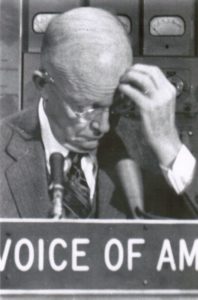
World War II Supreme Allied Commander in Europe General Dwight D. Eisenhower later accused these pro-Soviet VOA broadcasters of “insubordination” for undermining his and President Roosevelt’s attempts to lure elements of the Vichy French government and the Italian government out of the pro-Nazi Germany alliance.
In his memoir published in 1965, he also criticized a Voice of America reporter for trying to create non-existing news against his administration. Of all post-war U.S. presidents, Eisenhower’s speech was the least complimentary toward VOA. He was, however, a strong supporter of Radio Free Europe and Radio Liberty. [ref]Dwight D. Eisenhower, The White House Years: Waging Peace 1956-1961 (Garden City: Doubleday & Company, 1965) 279. Also see: Ted Lipien, “General Eisenhower accused WWII VOA of ‘insubordination’,” Cold War Radio Museum, May 14, 2018, https://www.coldwarradiomuseum.com/general-eisenhower-accused-wwii-voa-of-insubordination/.[/ref]
As a general during World War II, Eisenhower did not make his political party preferences known. He worked well with President Roosevelt and did not made public his Republican Party affiliation until some time after he left the military service. But some liberal Democrats in the Roosevelt administration were also behind-the-scenes critics of Voice America programs. In early 1943, top State Department officials led by Under Secretary of State Sumner Welles secretly advised the Roosevelt White House that some of those in charge of VOA could not be trusted not to promote Soviet Russia’s interests over the interests of the United States.
A secret memo to the FDR White House from the State Department included first VOA director John Houseman on the list of suspected Soviet sympathizers. Houseman was quietly forced to resign but other supporters of Stalin stayed at VOA for the duration of the war.[ref]The memorandum about Soviet and communist influence within the wartime Voice of America, signed off with a cover memo by Under Secretary of State Sumner Welles, a distinguished career diplomat and a major foreign policy advisor to President Roosevelt and his personal friend, was forwarded to the White House with the date, April 6, 1943. The attached memorandum with the addendum listing names of individuals who had been denied U.S. passports for government travel abroad was dated April 5, 1943. The documents were declassified in the mid-1970s and have been accessible online for some time from the Franklin D. Roosevelt Library and Museum Website and the National Archives. It appears, however, that they have never been widely disclosed and analyzed before now. They are presented for the first time with a historical analysis on the Cold War Radio Museum website. Under Secretary of State Sumner Welles April 6, 1943 memorandum to Marvin H. McIntyre, Secretary to the President with enclosures, Franklin D. Roosevelt Library and Museum Website, Box 77, State – Welles, Sumner, 1943-1944; version date 2013. State – Welles, Sumner, 1943-1944, From Collection: FDR-FDRPSF Departmental Correspondence, Series: Departmental Correspondence, 1933 – 1945 Collection: President’s Secretary’s File (Franklin D. Roosevelt Administration), 1933 – 1945, National Archives Identifier: 16619284.[/ref]
Welles, who was a liberal Democrat in the Roosevelt administration and one of President Roosevelt’s closest advisors on foreign policy, warned that Soviet sympathizers in charge of originating and preparing VOA broadcasts and other OWI propaganda could be a national security risk.
The records of the men involved seem to indicate that should there be a divergence between the policy of the States and the policy of Soviet Russia, these men, with a large degree of control of the American machinery of war making, would probably follow the line taken by Russia, rather than the line taken by the United States.[ref]Ted Lipien, “First VOA Director was a pro-Soviet Communist sympathizer, State Dept. warned FDR White House,” Cold War Radio Museum, May 5, 2018. http://www.coldwarradiomuseum.com/state-department-warned-fdr-white-house-first-voice-of-america-director-was-hiring-communists/.[/ref]
Throughout the war, VOA broadcasters were covering up Stalin’s crimes and spreading Soviet propaganda lies in support of the Kremlin’s aggressive foreign policy moves to impose Russia’s control over East-Central Europe. VOA’s chief news writer recruited for his position by VOA director John Houseman was American Communist Howard Fast, a future winner of the Stalin International Peace Prize (1953).[ref]Ted Lipien, “Stalin Prize-winning Chief Writer of Voice of America News, Cold War Radio Museum, March 12, 2019, http://www.coldwarradiomuseum.com/stalin-prize-winning-former-chief-writer-of-voice-of-america-news/ [/ref]Pro-Soviet officials and employees of the wartime Office of War Information, where VOA broadcasts originated, were also spreading Soviet propaganda in the United States through domestic newspapers and radio networks, but because of the Smith-Mundt Act, by 1948 VOA was no longer allowed to target domestic audiences with its radio broadcasts. The Smith-Mundt Act was largely focused on the State Department’s public diplomacy programs, including educational exchanges, but in addition to forbidding domestic distribution of VOA programs, it also put in place strict security clearances requirements for VOA personnel.
1948-1952
When Senator Capehart delivered his speech in 1948, most of VOA’s wartime communist broadcasters had been fired or had left their jobs. They were already being replaced by anti-communist East European emigre journalists such as the legendary Polish anti-Nazi fighter Zofia Korbońska, who was hired in 1948, but some supporters of accommodating the Soviet Union were still within the station’s management. A few hard-core Communists who had worked on VOA broadcasts during the war, including OWI Polish desk journalist Stefan Arski, also known as Artur Salman, went back to Eastern Europe.[ref]Ted Lipien, “Stefan Arski: Agent of Communist Collusion at VOA,” Cold War Radio Museum, April 4, 2018, https://www.coldwarradiomuseum.com/stefan-arski-agent-of-communist-collusion-at-wwii-voice-of-america/.[/ref] Arski was put in charge of preparing anti-American propaganda for the Soviet-dominated regime in Warsaw. American Communist Howard Fast became a reporter for the Communist Party USA’s newspaper the Daily Worker. [ref]Ted Lipien, “Howard Fast – Voice of America’s Only Stalin Peace Prize Recipient — Stalin Prize-Winning Chief Writer of Voice of America News,” Cold War Radio Museum, March 12, 2019, https://www.coldwarradiomuseum.com/stalin-prize-winning-former-chief-writer-of-voice-of-america-news/.[/ref]
What Senator Capehart and many other U.S. senators objected to in 1948 was something of a different nature than the earlier collusion with Russia, although he and others pointed out that the Voice of America was perhaps promoting socialism and also in no shape to counter Soviet propaganda after the war. Capehart and several other senators who made brief comments during his speech were outraged by the lack of editorial controls at VOA and what they considered a waste of taxpayers’ money in presenting an overall false image of the United States to radio listeners abroad.
One of the senators who had agreed with Senator Capehart in 1948 in his evaluation of VOA was Senator Carl Hatch (D-NM). He is best known as the author of the ‘Hatch Act’ of 1939 and 1940 which restricted partisan political activities by federal employees. Senator Hatch did not run for re-election in 1948 and was later appointed a federal judge by President Truman.
Mr. HATCH. Mr. President, in all seriousness, I want to say that what the Senator from Indiana has said this afternoon, though there has been laughter throughout the Chamber over it, amounts to a downright tragedy.
I regret deeply that any agency of Government has used any funds or any facilities procured from such funds to portray to any nation features respecting any State such as have been read here this afternoon. I hope that what the Senator has read, together with the revelation of other bad features I have heard concerning the Voice of America program–and I have been one of the strong supporters for the right kind of program–will have the effect of stopping such drivel, nonsense, and downright falsehoods as have been set forth in these broadcasts.
I should say that Mr. Allen, who has recently been confirmed, should have a copy of these broadcasts, and I hope that his agency will call the CONGRESSIONAL RECORD of today to his attention, and that such dives as is contained in these broadcasts will be stopped now and that no other State will be subject to the insults and the utterly nonsensical pictures which these broadcasts have given. They cannot be too severely condemned.
Senator Capehart’s speech and supportive comments from other U.S. senators had some effect on the management of the Voice of America within the State Department, but initially it was not nearly enough to force through major reforms. In the early 1950s, the U.S. government created Radio Free Europe (RFE) and Radio Liberty (RL) under the covert management of the Central Intelligence Agency (CIA) in the hope of having a more effective weapon against Soviet and communist propaganda. It turned out to be the right decision. In several countries in East-Central Europe, particularly Poland, RFE broadcasts became much more popular and much more effective then VOA programs, while in the Soviet Union VOA appeared to have a slightly larger audience if not a greater impact .
A study requested by officials in charge of the Voice of America in the State Department in showed that VOA Polish broadcasts were still substandard in 1951. A devastating but largely accurate criticism of Voice of America programs to Poland, based on the study done by Jan Ciechanowski, former Polish Ambassador to the United States during World War II, was presented to the House of Representatives on July 24, 1951 by Congressman Richard B. Wigglesworth (R-MA). He read to the House highly critical comments on Voice of America broadcasts to Poland which, he said, had been “collected from letters and other messages by Polish writers and newspapermen” and brought to the United States by recent refugees. They described VOA Polish broadcasts in 1951 as “uninteresting, drab, bureaucratic in tone, unconvincing.”
“They give the impression that they are prepared and spoken by clerks who do their job perfunctorily without any intelligent understanding of the human element or of Polish susceptibilities,” was one of many critical comments.
After his congressional career, Richard B. Wigglesworth, a Harvard-educated lawyer with experience in international affairs, was U.S. Ambassador to Canada. [ref]Richard B. Wigglesworth, 97 Cong. Rec. (Bound) – Volume 97, Part 7, July 24, 1951; 8749-8750. Also see “Voice of America 1951 – ‘Drab’ ‘Unconvincing’,” Cold War Radio Museum, February 24, 2018, https://www.coldwarradiomuseum.com/2018/02/23/voice-of-america-1951-drab-and-unconvincing-rep.-wiggleswoth-quotes-listeners-in-poland/.[/ref]
VOA was further severely criticized by the Madden Committee in December 1952 for its World War II reporting but mostly for its work from 1945 through the end of 1952. The bipartisan Select Committee to Conduct an Investigation and Study of the Facts, Evidence and Circumstances of the Katyn Forest Massacre, also known as the Madden Committee after its Democratic chairman, Rep. Ray Madden (D-IN), said in its final report: “In submitting this final report to the House of Representatives, this committee has come to the conclusion that in those fateful days nearing the end of the Second World War there unfortunately existed in high governmental and military circles a strange psychosis that military necessity required the sacrifice of loyal allies and our own principles in order to keep Soviet Russia from making a separate peace with the Nazis.”
The committee added:
For reasons less clear to this committee, this psychosis continued even after the conclusion of the war.
Most of the witnesses testified that had they known then what they now know about Soviet Russia, they probably would not have pursued the course they did. It is undoubtedly true that hindsight is much easier to follow than foresight, but it is equally true that much of the material which this committee unearthed was or could have been available to those responsible for our foreign policy as early as 1942.
The Madden Committee also said in its final report in 1952:
“This committee believes that if the Voice of America is to justify its existence, it must utilize material made available more forcefully and effectively.”
A major change in VOA programs occurred already in 1951-1952, with much more reporting being done on the investigation into the Katyń massacre and other Soviet atrocities, but later some of the censorship returned. Radio Free Europe, also funded and indirectly managed by the U.S., never resorted to such censorship, and provided full coverage of all communist human rights abuses.[ref]See: Select Committee to Conduct an Investigation and Study of the Facts, Evidence and Circumstances of the Katyn Forest Massacre, The Katyn Forest Massacre: Final Report (Washington: United States Government Printing Office, 1952), 10-12. The report is posted on the National Archives website: https://archive.org/details/KatynForestMassacreFinalReport.[/ref]
A more partisan but still highly accurate assessment of the Voice of America World War II and early Cold Wars broadcasts was included as a supplement to the bipartisan Madden Committee report by its Republican member from Illinois Rep. Timothy P. Sheehan.
“Admittedly, during the Katyn investigation, we but scratched the surface on the part that the Office of War Information and the Voice of America took in following the administration line in suppressing the facts about the Katyn massacre. During the war there may have been a reasonable excuse for not broadcasting facts which were available in our State Department and Army Intelligence about the Katyn massacre and other facts which proved Russia’s failure to live up to her agreements. After the war there certainly was no excuse for not using in our propaganda war the truths which were in the files of our various Government departments.
One of the witnesses from the Department of State, which controls the policy of the Voice of America, stated that they did not broadcast the fact of Katyn behind the iron curtain was because they did not have sufficient facts on it. Yet the preponderance of evidence presented to our committee about the cover-up came from the files of the State Department itself.
The Voice of America, in its limited broadcasts about the Katyn massacre, followed a wishy-washy, spineless policy. From other information revealed about the policies followed by the Voice of America, a committee of the Congress ought to make a thorough investigation and see to it that the Voice pursues a firm and workable propaganda program and does not serve to cover up the mistakes of the State Department or the incumbent administration.”
There can be no denial, however, that due largely to strong and persistent congressional criticism VOA eventually vastly improved its reporting on human rights violations in the Soviet Block and played a highly positive role, especially during the Reagan administration in the 1980s, in helping to bring down the Berlin Wall.
Countering Propaganda in 2019
The difference between 2019 and the World War II Cold War periods in how closely members of Congress and media looked at the Voice of America could not be more striking even though VOA appears now just as troubled, if not more so, than it was when left largely unsupervised from 1942 until 1945 under the direction of pro-Soviet officials in the Office of War Information. During World War II, some members of Congress became alarmed about foreign influence from Russia in VOA broadcasts and were able to force the removal of at least some Communists employed by first VOA Director John Houseman and his equally pro-Soviet OWI bosses. Houseman had to resign when the State Department in consultation with the U.S. military intelligence refused to give him a U.S. passport for VOA government travel abroad. World War II Congress was also able to eliminate most of the OWI funding for U.S. government propaganda aimed at Americans. A dangerous trend toward biased and partisan reporting has resumed at VOA under Obama administration officials following the partial lifting of some of the 1948 Smith-Mundt Act restrictions.
During the Cold War, VOA received a lot of attention from Congress and U.S. media, both good and bad. After bad publicity led to management and programming reforms, the Voice of America together with other U.S. tax-funded operations—Radio Free Europe and Radio Liberty—eventually played a key role in helping to fill the information gap behind the Iron Curtain.
In the post-Cold War period, the Voice of America lost much of its relevance and effectiveness because of mismanagement by its government bureaucracy and the loss of a clear focus which it had during the Cold War when press censorship behind the Iron Curtain was severe and uncensored news sources were few. Most members of Congress stopped showing interest in the agency as it became more and more dysfunctional and less relevant, starting in the 1990s. With a few exceptions, U.S. lawmakers and their staff are not regularly monitoring the content of VOA programs and asking questions. If U.S. media report at all these days on the Voice of America and its current federal agency, the U.S. Agency for Global Media (USAGM), it is usually in connection with multiple management and programming scandals such as illegal targeting of Americans with Facebook ads, theft of taxpayers’ dollars by a high-ranking bureaucrat, partisan bias, or the use of a video showing a fake bomb explosion allegedly arranged by a reporter to increase web traffic.[ref]Elizabeth Williamson, “New Scandals Rock Government’s Foreign Broadcasting Service,” The New York Times, July 8, 2019. “Voice Of America Ignored Multiple Warnings On Anti-Trump Facebook Posts” By Shelby Talcott. The Daily Caller, July 16, 2019, https://dailycaller.com/2019/07/16/voice-of-america-trump-facebook/[/ref]
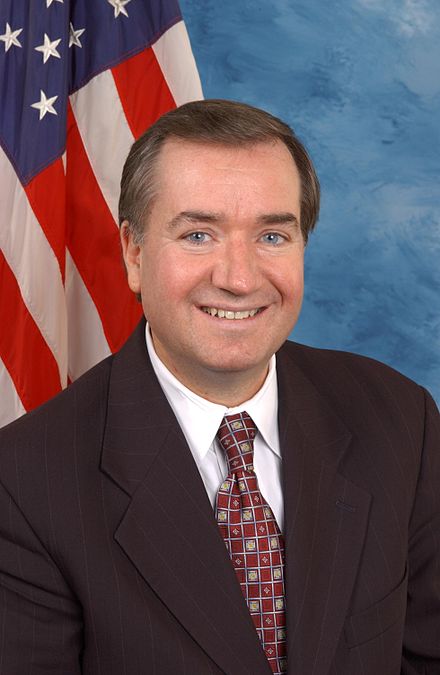
Problems that the Voice of America faces in 2019 as Russia, China and Iran wage their propaganda attacks on the United States are far more serious than anything that had been described in the 1948 booklet printed at the request of Senator Capehart. The now former Chairman of the House Foreign Affairs Committee, Rep. Ed Royce (R-CA), one of the few members of Congress who have paid close attention to VOA programming in recent years, reported in December 2018 shortly before retiring from Congress that United States Agency for Global Media entities repeatedly violated U.S. law and appear ineffective in the digital age. Royce accused USAGM, VOA, and RFE/RL of “a lack of strategic thinking at networks regarding audience development,” and “a lack of network management of digital content, poor internal structure and policy regarding digital media advertising, and ineffective use of taxpayer funds.” As Senator Capehart did in 1948, Rep. Royce also issued a special report.
The review by the Chairman and his committee staff found that insufficient management and devolved operating structures for digital advertising at RFE/RL and Voice of America (VOA) allowed for repeated violations of the Smith-Mundt Act, which prohibits domestic dissemination of content developed by the State Department and U.S.-funded entities. An examination of six VOA language services found at least 860 Smith-Mundt violations over a two-year period. Violations continued even after the New York Times report, and the launch of a USAGM task force designed to address the issue.”[ref]Report by Chairman Edward R. Royce, Special Investigation: U.S. Int’l Broadcasting in Digital Age: Getting Advertising Right, December 2018, http://bbgwatch.com/bbgwatch/wp-content/uploads/2019/01/US-International-Broadcasting-in-the-Digital-Age-Getting-Advertising-Right.pdf.[/ref]
In this post, the Cold War Radio Museum offers excerpts from Senator Capehart’s 1948 speech to the U.S. Senate and comments from other senators showing how closely VOA’s work was being monitored and often criticized during the Cold War with the purpose of making it more effective against Soviet Russia and Communism. As Senator Capehart’s 1948 speech and his letter to constituents suggest, close monitoring of the Voice of America programs and careful screening of journalists to guard against foreign influence, bias and unprofessional reporting, are also needed now and into the future if VOA is to play an effective role in the propaganda wars of the digital age.
Ted Lipien is a former director of VOA Polish Service and former VOA acting associate director.
Voice of America?
OF
HON. HOMER E. CAPEHART
Mr. CAPEHART. Mr. President, notwithstanding the fact that we have had a quorum call, I find about as few Senators present as were present before the quorum call. However, I appreciate that Senators are busy in committee meetings.
This year the Congress voted an appropriation of $27,000,000, as I recall the figure, to support the Voice of America. I do not know how many millions we have voted in the past. It was my understanding that it was to be a means of educating the peoples of the world as to our way of life and the good things about our country. I hold in my hand a script of one of the broadcasts, covering the States of Nevada and Utah. I have on my desk scripts relating to Alabama, Texas, and Pennsylvania.
If I correctly understand, the Voice of America, which is under the jurisdiction of the oflice of the Secretary of State, has had a young man and a young woman traveling over the United States. In these broadcasts they have been telling the world about our respective 48 States.
As I stated a moment ago, the broadcast which I hold in my hand covers Nevada and Utah. It is unfortunate that we have no music here today; and it is unfortunate that we have no sound effects or voices in the background, because, not being an actor and not being accustomed to speaking on the radio, I may not do a very good job.
However, I wish to read the broadcast as sent out by our Government at the taxpayers’ expense to the Central and South American countries. This broadcast was originally done in Spanish. I hold the English translation. The script which I hold in my hand was given to me by those in charge of the Voice of America programs. It is entitled, “English Translation—No North America.” I call particular attention to that. The title is “No North America.” The caption reads further:
Script broadcast in Spanish to Latin America by National Broadcasting Co. on February 2, 1948.
Mr. President, when I say “music,” I mean that music was heard at that point in the broadcast. Of course, in this instance it means that we should hear music, although we shall not. When I say “announcer,” that refers to one of the two persons who, in the broadcast, were supposed to be traveling over the United States in an effort to educate the world in regard to our 48 States. The narrator was supposed to be one of those two persons. “Voice II” means one of the two persons talking to the narrator.
Now here is the broadcast:
Music: Theme up and under.
Announcer: The National Broadcasting Co. presents: Know North America, a weekly program in which we relate the adventures of two travelers who continue to discover the many wonders of historical and present life in the U. S. A.
Please notice that it says “historical and present life in the United States.”
Then–
Music: Up and out plane, establish, then under.
That is the background.
Then–
Voice: Let me see—Oh—This immense expanse of white, is it Nevada?
Narrator: Yes—-one of the biggest States in the Union, and it has only 110,000 inhabitants.
Voice: Then how can it be a State?
Narrator: One hundred thousand is the minimum.
Does anyone know of any law in the United States that requires that before a new State can be admitted into the Union, a minimum of 100,000 people must be living within its area?
Voice II: Is it possible that there is so much snow here? This doesn’t seem like the West, but like a Siberian steppe.
Comparing it to Russia–
Narrator: But it’s quite the opposite. The immense white expanse is a desert.
Voice II: Really?
Narrator: Of course it is. The Spanish conquerors were also deceived by the mirage. When Gaspar de Portola‘s soldiers saw this desert from the peak of that mountain, they shouted, “What a lot or snow!”
Voice: But they were disappointed.
Narrator: And what a disappointment! When they came down, the snow had turned to scorching sand. So it is that every time they referred to these regions, they talked about the big snowy country.
Voice II: Is this historical?
Narrator: Absolutely.
Voice II: Does this mean that Nevada owes its name to an optical illusion?
Narrator: Exactly.
Voice II: That’s right. You’re handsome.
Narrator: His name is.
Laughter.
Music. Up and out.
Still in the plane.
Mr. President, I presume they were flying over Nevada.
Then–
Voice (more or less alarmed)–
Note this, Mr. President; I suppose I should be more or less alarmed–
Listen, are we leaving Nevada behind?
Narrator: Yes: the plane flies directly from San Francisco to Salt Lake City.
Voice: What a shame.
Narrator: Why? Nevada has no interest in itself:
Listen to this:
Nevada has no interest in itself; it’s a land of cowboys, and its two principal cities are in competition. In Las Vegas people get married, and in Reno they get divorced.
Mr. President, this is enlightening. We are supposed to be enlightening the world in this way—and we are spending millions of dollars of the taxpayers’ money on these programs.
Voice: Yes. but you are forgetting that Nevada is the only State where you can play roulette. And, if we passed through Reno, I could get a divorce.
That is most enlightening; is it not? I am sure the people of Nevada appreciated that.
Then–
Narrator: You? From whom?
Voice: From you?
Laughter.
Voice: If he and I continue alone, we will get to know North America better.
The people of South America must have enjoyed listening to that.
Then–
Narrator: Oh, yes; getting up at four in the afternoon and leading a night life.
Voice: Well, what about it? All the self-respecting animals, the tiger, the lion, and the panther, sleep in the daytime and hunt at night. The hens are the only ones that go to bed at six in the evening.
Mr. President, the taxpayers are the ones who are paying to send that sort of trash over the radio to the people of Central America and South America.
Then–
Narrator; Don’t you worry, we’ll go back to Nevada, but flrst we have to stop in Salt Lake City.
Voice: What for?
Voice II: Utah is a very interesting State.
Voice: Oh, Utah. That’s where men have as many wives as they can support?
Mind you. Mr. President, this is going over the radio to the peoples of the world.
Then–
Voice II: There’s a gleam in your eye.
Narrator: But, man, you can’t even support one.
Laughter into, up, and out. Light traffic. Three pairs of feet on pavement; stop.
Voice II: What a monumental piece of work.
Narrator: That’s the famous Mormon Tabernacle. It was built by Brigham Young, one of the greatest colonizers in American history.
Voice II: How the Mormons suffered in their Odyssey from New York to Utah.
Narrator: In that period of deep religious feeling, people persisted in believing that the Mormons were trying to revive paganism. Joseph Smith, the prophet of the new religion, was assassinated by the people, and then Brigham Young took charge of the tribe and led it across deserts and mountains in search of the promised land.
Voice: Like Moses?
Narrator: Moses knew where he was going, but the Mormons did not. When they reached this spot and discovered that the water in the lake was salty, Young raised his eyes to heaven and said: “Jehova, I will build the New Zion on the borders of this new lake, because its waters are salty.”
Voice II: And what a beautiful city they built. Brigham Young governed the Mormons for 30 years with an iron hand, like an absolute emperor. When Mark Twain, the great humorist, visited this city in 1863, he said that the only thing which resembled the discipline or the Mormons was the Prussian Army.
[Laughter.]
Leaving the impression that they are still disciplined along those lines. Mind you, Mr. President, these broadcasts are sent out to people all over the world.
Then the script shows that there was laughter—that the persons giving the broadcast were laughing in an attempt to show they thought that was funny.
Then–
Voice II: Young used to carry a bottle of whisky in one pocket and a cut of chewing tobacco in the other.
Mr. President, I am sure that those of us in the Senate who voted to appropriate $27,000,000 for these broadcasts are proud of that statement, and are proud that we appropriated so much money to have some fool broadcast that sort of information to the people throughout the world.
Voice: How is that? Aren’t the Mormons sutposed to be very strict?
Narrator: Certainly, and that is why Young did it. Two or three times a day he pulled out the liquor and tobacco, smelled them, and put them back in the pocket.
Voice: So as not waste them?
Narrator: No; to prove that he was stronger than vice.
Voice: That is what is called having will power.
Narrator: Brigham Young was a primitive priest, who didn’t counsel virtue, but imposed it.
Voice: How about the story that he had 40 wives; is that a lie?
Narrator: No. The Mormons were polygamous, but not for want of morality.
Voice: And what do you call it?
Narrator: I have no opinion, but they say that the Mormons instituted polygamy to defend themselves against their enemies.
Note this, Mr. President:
Voice: Those are excuses.
So, Mr. President, we have spent $27,000,000 of the taxpayers’ money in order to have such broadcasts made to the people of the world.
Then–
Narrator: They were very few in number, and had to increase the population rapidly.
Voice II: And did they succeed?
Narrator: Of course, so far nobody has succeeded in dislodging the Mormon dynasty in Utah.
Voice: Not even politically?
Narrator: Eighty percent of the population is Mormon, and the Governor, Senators, Representatives, etc., etc., belong to to the sect.
Voice: so Utah is a kind or oyster?
That was a great contribution to the enlightenment of the world—to say that Utah is a kind of oyster.
Then–
Narrator: This is the only people in the world which is governed by religion, and legally so, because the citizens vote.
Voice II: But they vote for Mormons.
Voice: Of course, the day they vote for someone else they will lose control.
Music. Up and out.
Voice II: What a strange church.
Narrator: That is the secret church, which only the prophet and the 12 apostles enter.
Voice (laughs): Is that what they are called?
Narrator: Yes; they are the ones who govern the sect.
Voice II: Does this mean that no one can enter?
Narrator: only a chosen group, the highest directors of the tribe.
Imagine referring to the people of Utah today as a tribe.
Voice: This seems to me neither Christian nor democratic.
That statement went out, if you please, all over the world—“This seems to be neither Christian nor democratic.”
Narrator: When they are subjected to criticism they ask frankly: “Do all the Catholics reach the Pope?”
Voice: It’s true, they aren’t entirely wrong. There must be a distinction in rank.
Narrator: The symbol of Utah is the beehive, and these are the Mormons, tireless and faithful bees. The sect, whose capital is truly fabulous, controls all the business in the State.
Voice: And who are the stockholders?
Narrator: There aren’t any.
Apparently that is trying to prove that Utah is a communistic or socialistic State.
Everyone is obliged to give 10 percent to the State in perpetuity.
I want to read that again:
Everyone is obliged to give 10 percent to the State, in perpetuity.
That is not a true statement.
Voice II: Very well, and what do they do with so much money?
VOICE: I suppose that the Twelve Apostles will manage it.
Narrator: They manage it, but they do not touch it. They spend it all on the community, in public works, hospitals, charitable institutions, and, above all, in schools, which are numerous and very fine in Utah.
That is an example of broadcasting to the world at the expense of the taxpayers that Utah—and it is not true; it is a lie to begin with—is some sort of socialistic State in which everybody contributes 10 percent to the State.
Voice II: Does this mean that no Mormon has the right to ask for an accounting?
Narrator: He doesn’t ask for any and they don’t give him any. The church is sacred. and distributes funds as it pleases.
Voice: And suppose a Mormon decides not to continue giving up one-tenth?
Narrator: Ah, for this sect has a little army, called the avenging angels.
Voice II: which assume the task or convincing those who do not pay?
Narrator: Naturally.
Voice II: In what manner?
Narrator: With convincing arguments.
Voice: Made of rubber or wood?
[Laughter]
That would leave the impression that there is a secret organization called the avenging angels, and that if a person does not pay 10 percent to the State, as stated in the script, they have a way of making him do it. The narrator wants to know if that convincing argument is made of rubber or wood, leaving the impression I presume that they take him out into the woodshed and proceed to fund him either with a rubber or a wooden substance. I ask Senators, are they not around to have had a part in contributing $27,000,000 to that sort of thing?
END OF PARTIAL TRANSCRIPT
The Cold War Radio Museum is planning to publish a new book with the full reproduction of the 1948 “Voice of America?” booklet and the full transcript of the debate in the U.S. Senate. The book will be available for sale on Amazon in print and e-book.


